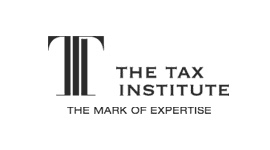All businesses must protect their people, their assets, and their clients.
Because there is an element of risk in any business, insurances are the best way to offer some assurances.
Which business insurance policies are right for your business?
No matter how small or large, or what industry, every business will need at least one – if not several! – types of insurances.
So, how do you know which types of insurance your business needs? Speak to the team at Profacc Public Accountants and we'll guide you through. In the meantime, read on...!
1. Public Liability
Public liability is vital for any business where clients, staff, or consumers come to your premises. It can help cover the costs for personal injuries, loss or damage to property, and death.
Public liability only covers incidents on your business property, so if there's an incident anywhere else, you won't be covered.
2. Professional Indemnity
If you provide advice or a professional service to a client, it's wise to protect yourself from potential accusations of professional negligence or malpractice. For example, financial planners would generally need professional indemnity insurance, as would copywriters, IT specialists, advertising agencies, and management consultants.
This type of insurance policy provides you and your business with protection against claims for financial loss, bodily/personal injury or property damage arising from an act, error or omission in the performance of professional services.
3. Property Insurance
If your business leases or owns a physical space, then you will need property insurance. This will cover your premises, and all the equipment inside, from theft, or floods/storms/fire etc.
However, if your business is in an area prone to flooding, for example, you must check with your insurer to see if this is still covered, or ask them to price a separate policy.
4. Workers Compensation
Worker’s compensation provides insurance to employees who are injured while at work. It covers wage replacement and medical benefits to the employee. In exchange for these benefits, the employee gives up their rights to sue their employer for the incident.
5. Vehicle Insurance
If your business has vehicles that are used by either yourself or staff, then these vehicles should be fully insured to protect businesses against liability if an accident should occur. At the very least, businesses should insure against third-party injury, but comprehensive insurance will cover that vehicle in an accident, as well.
If employees are using their own cars for business, their own personal insurance will cover them in the event of an accident.
6. Business interruption insurance
If a disaster or catastrophic event was to occur, business operations might be interrupted.
We’ve only had to see the chaos which the Coivd-19 pandemic has caused to so many businesses.
But there could also be individual incidents – such as a lawsuit, a fire/flood, or a delay in goods arriving etc - which cause lost income due to your staff’s inability to work in the office, manufacture products or make sales calls.

7. Directors and Officers Insurance
This type of insurance protects the directors and officers of a company against their actions that affect the profitability or operations of the company. If a director or officer of your company, as a direct result of their actions on the job, finds him or herself in a legal situation, this type of insurance can cover costs or damages lost as a result of a lawsuit.

At Profacc accountants we help businesses manage everything from tax, budgets, business set up, financial management – and more! Manage, grow, or scale your business by Speak to our team of experienced accountants ……………………






